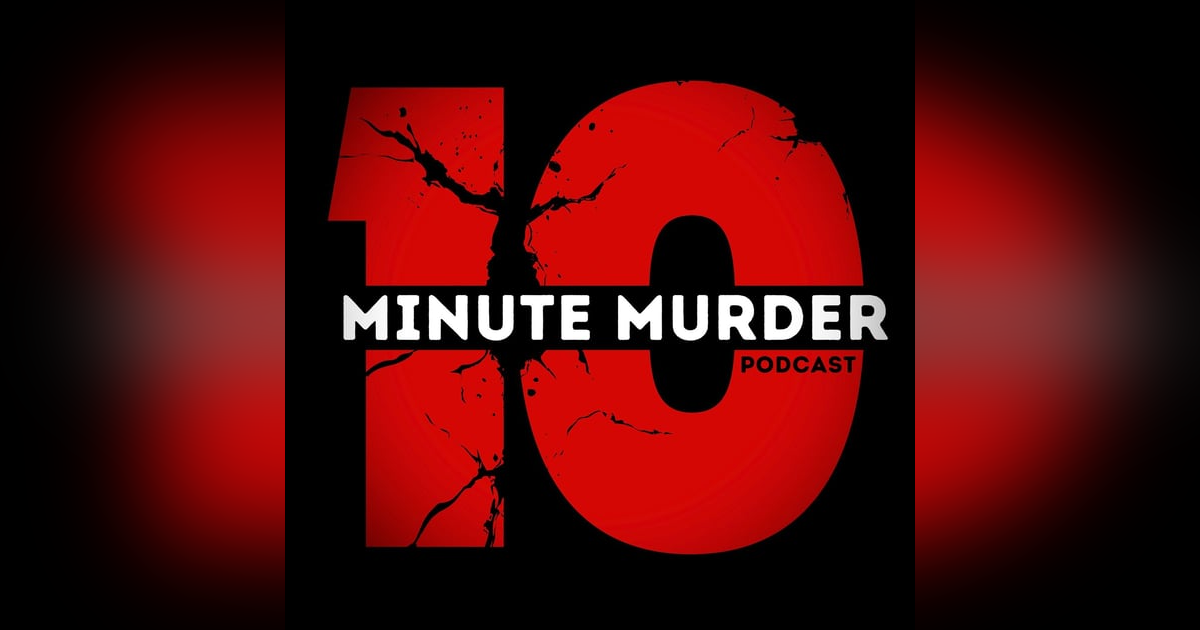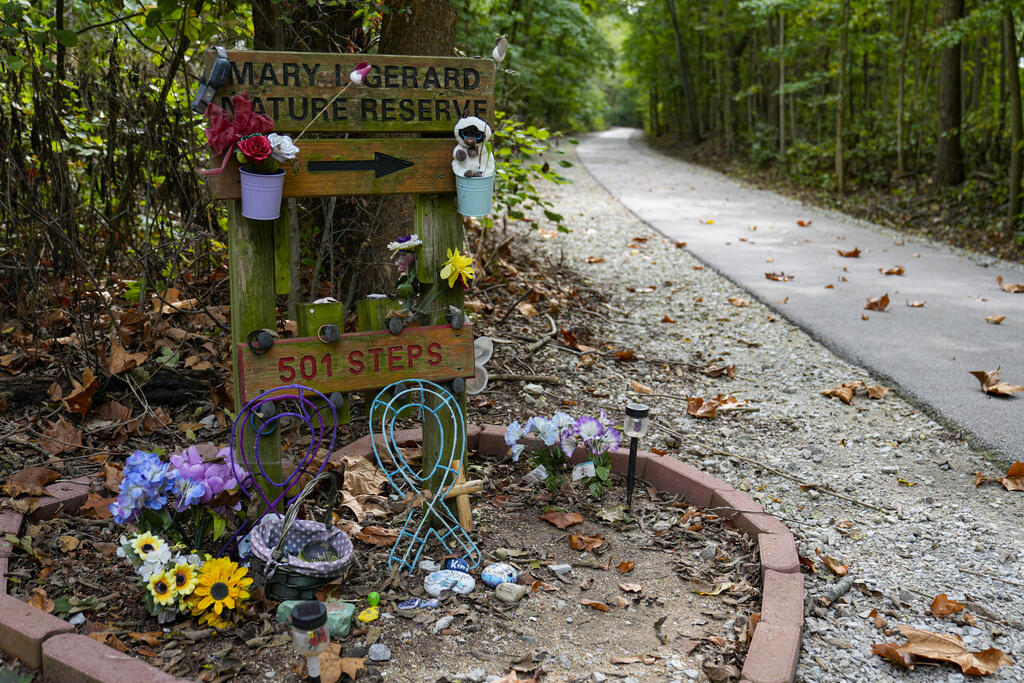The Delphi Murders: Justice for Libby and Abby

A Chilling Day in Delphi: The Last Moments of Libby and Abby
On an unseasonably warm February afternoon in 2017, best friends Liberty “Libby” German and Abigail “Abby” Williams set out to explore the Monon High Bridge Trail in Delphi, Indiana. It was the kind of spot that embodied small-town charm—quiet, picturesque, and seemingly safe. But by the next morning, that illusion was destroyed. Their bodies were discovered not far from the trail, and the small town of Delphi would soon find itself at the heart of one of the most chilling unsolved cases in modern true crime.
What made this case stand out almost immediately was a haunting piece of evidence left behind by Libby’s quick thinking. Authorities released an audio clip and a short video from her phone, sending a collective shiver down the spine of anyone who listened. The voice of an unidentified man could be heard saying, “Guys… down the hill.” The grainy video captured him walking toward the girls with an unsettling confidence. It wasn’t the stuff of horror movies—it was worse because it was real, and it was irreversible.
The case quickly became a national obsession. Armchair detectives scrutinized every frame of the video and dissected each syllable of the chilling phrase, “Guys… down the hill.” Podcasts, YouTube channels, and Reddit threads dedicated themselves to unraveling the mystery of the man now infamously known as “Bridge Guy.” Despite the relentless efforts of law enforcement and the public, years passed without an arrest. Delphi remained trapped in a nightmare, its close-knit community burdened by unanswered questions and profound grief.
For years, it seemed the case might remain unsolved. But after what felt like an eternity of silence and speculation, a breakthrough finally arrived—a development so significant it shocked even the most seasoned true crime followers. Justice was on the horizon, and the case had taken a dramatic and long-awaited turn.
The Haunting Evidence That Defined the Case
Liberty “Libby” German, 14, and Abigail “Abby” Williams, 13, were the kind of best friends who seemed inseparable, embodying the spirit of a small-town childhood. Libby loved photography and softball, while Abby had a natural talent for art and a big imagination. Together, they filled their world with laughter, inside jokes, and boundless energy. They were, simply put, two bright lights on the brink of a future that was stolen far too soon.
On February 13, 2017, the girls had a day off from school and decided to make the most of it. They persuaded Libby’s older sister to drop them off at the Monon High Bridge Trail, a local hiking spot famous for its scenic views and the towering, weathered railroad bridge stretching over Deer Creek. It was the kind of place where two teenagers could take pictures, explore, and enjoy a little freedom.
At 2:07 p.m., Libby posted a Snapchat photo of Abby walking along the bridge—a quiet snapshot of a carefree afternoon. But sometime after that moment, everything went terribly wrong. When the girls didn’t show up at the designated pick-up spot later that afternoon, their families knew something was off. Concern quickly turned to alarm, and by nightfall, search teams were combing the woods with flashlights. Despite their efforts, there was no sign of the girls that evening.
What makes this case particularly haunting is Libby’s remarkable quick thinking. In a moment of unimaginable terror, she took out her phone and recorded both video and audio of the man believed to be their killer. It was an act of bravery that defies her age—one that preserved vital evidence of the man now infamously known as “Bridge Guy.” Her actions would become the foundation of the investigation, ensuring that his voice and image would haunt not only Delphi but the entire world.
The search for Libby and Abby ended in heartbreak on Valentine’s Day 2017. Their bodies were discovered near Deer Creek, just off the Monon High Bridge Trail. They weren’t far from where they’d last been seen—less than half a mile—but the spot was remote, overgrown, and easy to miss. What started as a frantic search ended in the kind of nightmare that forever changes a family, a town, and anyone paying attention.
For years, the details of what actually happened remained locked away, fueling the frustration and mystery of an already devastating case. It wasn’t until the trial of Richard Allen in 2024 that some of the truth came to light—and it was worse than anyone could have imagined. Both girls had their throats cut in what can only be described as a brutal, senseless attack. Libby’s body was found unclothed, while Abby was wearing Libby’s clothes. Why? No one knows. Maybe it was part of the killer’s depraved plan, or maybe it was something even more twisted. Whatever the reason, it’s a detail that sticks with you, whether you want it to or not.

Years of Mystery: The Search for Justice
And then there was the bullet—a single, unspent .40-caliber round found near their bodies. At first glance, it seemed like a random clue, but that lone piece of evidence turned out to be a game changer. It linked a firearm owned by Richard Allen directly to the crime scene and gave investigators the lead they’d desperately needed after years of frustration and false starts.
It’s impossible to comprehend what Libby and Abby endured in their final moments. And honestly, it’s something most people in Delphi—and beyond—are still struggling to wrap their heads around. The details are as horrifying as they come, but they’re a painful reminder of why justice for these two remarkable girls was never optional. It was a fight that had to be won, no matter how long it took.
The investigation into Libby and Abby’s murders began with one of the most haunting clues in modern true crime. Police released an audio clip from Libby’s phone: a man’s voice saying, “Guys… down the hill.” Hearing it made your stomach drop—those were likely some of the last words the girls ever heard. Alongside the audio was a grainy video of the suspect walking across the bridge, hands in his pockets, stride steady. It was chilling and frustratingly vague—enough to terrify, but not to identify him.
Then came the sketches—first one, then another, then a revision. Each update felt like a breakthrough waiting to happen, but the tips led nowhere. As years passed, the case became an obsession for the public and a relentless pursuit for law enforcement, yet the trail only grew colder.
A Local Connection: The Arrest of Richard Allen
Out of nowhere, a breakthrough. In October 2022, police arrested Richard Allen—a local who had been hiding in plain sight in Delphi the entire time. He wasn’t a drifter or an outsider; he blended seamlessly into the community. The key to his arrest? An unspent .40-caliber bullet found at the crime scene, linked to a gun Allen owned. After years of heartbreak and dead ends, investigators finally had a tangible connection.
The arrest was a turning point but left lingering questions: How had he gone unnoticed for so long? Why did it take years to make the connection? Relief was tempered by the bitter realization that justice had been so close, yet so far, for so long.
Allen’s trial was a rollercoaster—equal parts shocking and heartbreaking. The prosecution’s case centered on that bullet, arguing it was the literal smoking gun that tied Allen to the murders. They also presented Allen’s alleged confessions, made multiple times to his wife, his mother, and even prison staff. It was damning, and combined with the horrific details of the crime, the picture painted was grim.
But Allen’s defense fought back. They challenged the confessions, citing his mental health and solitary confinement as factors, and pointed to the lack of DNA evidence directly linking him to the scene. No fingerprints, no fibers—just that bullet. And they didn’t let the jury forget it.
Deliberations stretched over 19 hours across several days—an excruciating wait for the families, the community, and everyone invested in the case. Finally, on November 11, 2024, nearly seven years after the tragedy, the jury delivered their verdict: Richard Allen was found guilty on all counts. The courtroom erupted with a mix of relief, grief, and bittersweet closure. Justice, at last, had been served.
Sentencing is scheduled for December 20, 2024, with Allen facing up to 130 years in prison. It won’t erase the pain or bring Libby and Abby back, but it ensures he will never walk free again.

Remembering Libby and Abby: A Legacy of Strength
For the families and the community, the verdict closed a painful chapter in a story that has haunted Delphi for far too long. The scars of this case will never fully heal, but knowing the person responsible will spend the rest of his life behind bars offers some measure of peace.
The murders of Libby and Abby left an indelible mark on Delphi. For nearly seven years, the town lived under a cloud of fear and grief. Parents watched their kids with unease. Strangers became suspects. The trust that once defined the community was replaced with a haunting question: Could the killer be one of us?
Delphi’s name became known far beyond Indiana, for reasons no town would ever want. True crime fans, journalists, and internet sleuths poured over every detail—the audio, the video, the sketches—desperate for answers. At times, the attention helped. Other times, it created chaos. But it proved one thing: no one had forgotten about Libby and Abby.
Without Libby’s courage—her decision to record that chilling audio and video—this case might have gone cold. Her quick thinking preserved the crucial evidence that gave investigators their first lead. It’s a powerful example of how technology can preserve truth, even in the worst moments.
It’s also a testament to the power of persistence. That single unspent bullet, overlooked at first, became the key that cracked the case. It’s proof that, with time, patience, and modern forensic science, even the toughest mysteries can be solved.
Libby and Abby weren’t just victims—they were vibrant young girls, full of dreams and promise. Their loss is a wound that will never heal, but their legacy united a community in grief, hope, and determination. Their memory will always be a source of strength.
None of this—the arrest, the trial, the verdict—would have been possible without the tireless work of investigators, prosecutors, and families who never gave up. The road to justice was long and agonizing, but their persistence ensured the story didn’t end in silence.
As this case comes to a close, one truth remains: justice has been served, but Libby and Abby will never be forgotten. Their names will forever remind us why we fight for justice, no matter how long it takes.







